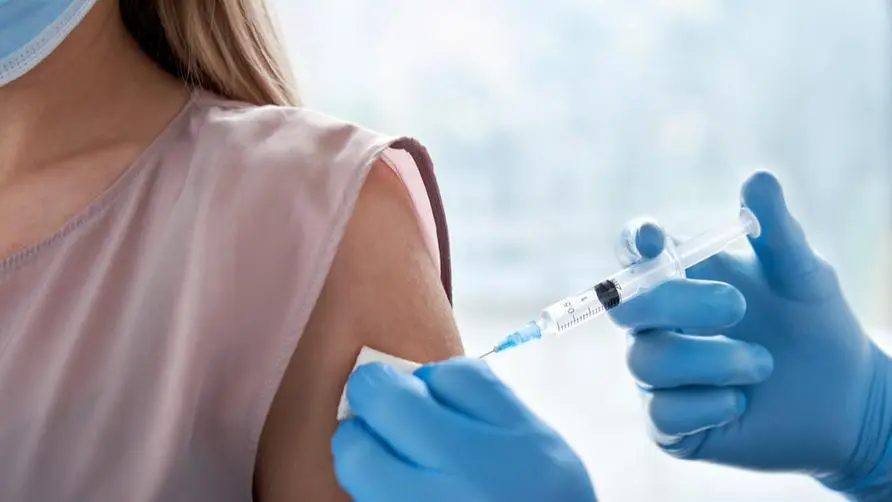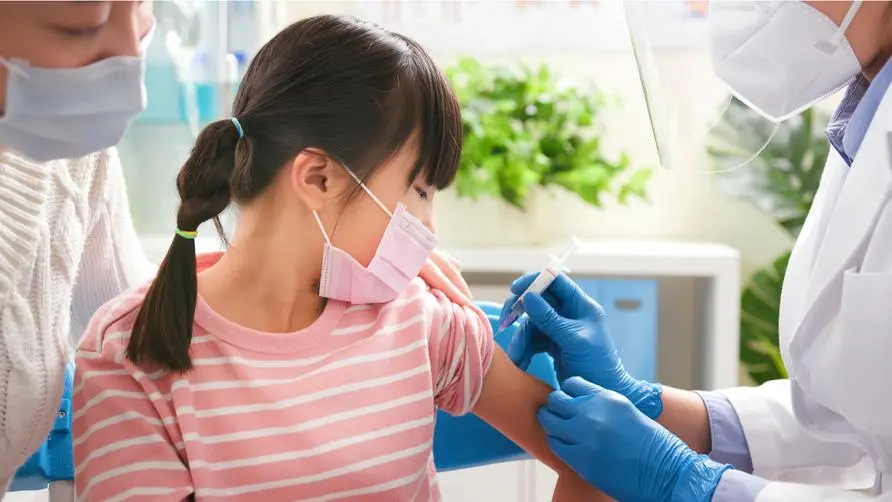Which vaccine should be given to children? Is BNT safer? Is Moderna more effective? Who is at higher risk for myocarditis?
Taiwan Food and Drug Administration approves Moderna vaccine for children aged 6 to 11 years old
The local epidemic has exceeded 1,000 cases in consecutive days. The Taiwan Ministry of Health and Welfare, Food and Drug Administration has approved the Moderna vaccine for use in children aged 6 to 11 years old. The dosage is two doses of the basic dose, each dose is 0.25Ml (for Half the adult dose) 2 doses given 28 days apart.
Since the Moderna vaccine’s EUA application for administration to adolescents and below has not yet been approved in the United States, discussions have arisen as to why the BNT vaccine, which has been approved in the United States and can be administered to children, is not open. Whether children need to be vaccinated against COVID-19 still needs to be discussed at the ACIP (Ministry of Health and Welfare Advisory Council on Infectious Disease Prevention and Control Vaccination Group) expert meeting on Wednesday.
What’s the difference between BNT and Moderna children’s vaccines? Is Moderna better than BNT?
Dr. Lin Shibi, a leading infectious disease specialist at the front desk, published an article in “Japan’s Self-guided Travel Poisoners” stating that the clinical trials of Moderna vaccine in adolescents and children have been completed, including Australia, the European Union, Canada and the United Kingdom, which have approved the use of Moderna vaccine in children. Emergency Use Authorization. The U.S. FDA requires Moderna to complete the information, so it has not yet been able to provide information on the vaccination of adolescents and children in the United States.
Dr. Lin Shibi also analyzed the differences between the BNT-Pfizer children’s vaccine and the Moderna children’s vaccine. Pfizer produces an additional 1/3 adult dose vaccine for children, and the buffer and packaging have been changed. In contrast, Moderna’s clinical trials in children used half the amount of the original vaccine.
The BNT vaccine was given to children aged 2-5 years old in two doses of 3 micrograms. The results showed that the neutralizing antibodies were insufficient. The effect of three doses is still being observed. Moderna has already obtained test results of administering 25 micrograms to children aged 6 months to 6 years old. The neutralizing antibodies have met the qualified standards and are applying to regulatory authorities in various countries. Dr. Lin Shibi pointed out that Moderna may surpass BNT in the effectiveness of the “little children” vaccine.
There is a big difference in dosage between BNT and Moderna, and Moderna may have higher adverse reactions.
However, the BNT vaccine has been approved for use in children for a long time, and has accumulated safety and effectiveness data from various countries. In addition, the dosages of the two are quite different. The BNT vaccine for children is 10 micrograms, which is 1/3 of that for adults; Dana vaccine 50 micrograms is 1/2 of the adult dose. Dr. Lin Shibi pointed out that the difference between the two vaccines is 5 times, so the BNT vaccine has a low chance of myocarditis in children and cannot be directly applied to the Moderna vaccine.
Dr. Lin Shibi also pointed out that the dose of BNT children’s vaccine is quite low, so there are few adverse reactions. Data in the United States found that the risk of BNT myocarditis in children is much lower than that of adolescents. The Moderna vaccine is theoretically more effective, but the dose is higher and side effects may be higher. Reducing the dosage and lengthening the interval between injections may be a feasible method, but there is currently no relevant data to prove the effectiveness and safety.
BNT childhood vaccine results in lower risk of myocarditis than Moderna
Dr. Li Weixin wrote in “Linyuan Seaside Infectious Disease Doctor Li Weixin” that the Moderna vaccine is targeted at children between 6 months and 11 years old. The standard for analyzing the data is antibody neutralization. After two doses, the antibody values against Omicron’s virus strains exceeded the standard value. And overall, the protective effect of the Moderna vaccine among 6-11 year olds is better than that for adults.
As for the incidence of myocarditis after vaccination, according to the current data from “JAMA”, the incidence of BNT vaccine among 12-15 years old is 70.7 per million; for 16-17 years old, the incidence is 105.9 per million; 18 -24 years old is 52.4 parts per million. The probability of myocarditis when taking Moderna is 56.3 per million for 18-24 years old, which is slightly higher than BNT.
The younger you are, the lower your risk of myocarditis? To be confirmed by subsequent data
Dr. Li Weixin pointed out in the article that although there were no deaths from myocarditis in children and adolescents, the hospitalization rate reached 96.4. From the BNT data, it can be seen that the probability of myocarditis occurring when taking BNT under the age of 15 is relatively low. Girls are about 10 times lower than boys.
At present, vaccination of children and adolescents can indeed improve the resistance to Omicron. However, the data on myocarditis in Moderna in 12-17 years old is not complete. Whether it is the same as BNT, the younger the age, the lower the chance of myocarditis. Follow-up is needed. Only by releasing relevant information can we know.
The Mayo Clinic, an authoritative international medical institution, pointed out that the highest proportion of myocarditis after vaccination with the RNA COVID-19 vaccine is among males aged 12-29, and it usually occurs most frequently within a week after vaccination with the second dose. If you find that your child at home has symptoms such as chest pain, shortness of breath, rapid heartbeat, or palpitations after being vaccinated, you should seek medical attention as soon as possible.
source:
Dr. Lin Shibi: “People Poisoned by Self-guided Travel in Japan”
Dr. Li Weixin: “Dr. Li Weixin, Linyuan Seaside Infectious Disease Doctor”
mRNA-1273 Vaccine-elicited Neutralization of SARS-CoV-2 Omicron in Adolescents and Children
Health Canada Authorizes Moderna’s COVID-19 Vaccine in Children (6-11 Years)
EMA recommends approval of Spikevax for children aged 6 to 11
COVID-19 vaccines for kids: What you need to know
Further reading:
Is the “4th dose” effective against Omicron? Israeli study says benefits may be ‘minimal’





